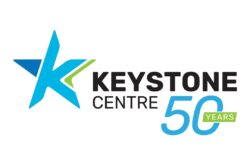Manitoba Implementing Tougher Drinking and Driving Penalties
Tougher and more timely consequences for drinking and driving in Manitoba will come into effect Dec. 16 including new sanctions that will see drivers temporarily lose their vehicles for registering a ‘warn’ on an approved screening device, Justice Minister Cliff Cullen announced today.
“Impaired drivers are still taking the lives of Manitobans and we need to do more to make sure people get the message that this is unacceptable,” said Cullen. “Immediate roadside prohibition ensures on-the-spot consequences for making the poor decision to drink and drive. The consequences are clear – impaired drivers will lose their licence, their vehicle and face significant financial penalties.”
The new approach, called immediate roadside prohibition, increases sanctions for drivers who register a ‘warn’ level on an approved screening device. It also provides a faster alternative to the breathalyzer test and resolves matters outside of the criminal justice system for drivers who refuse or fail an approved screening device test for the first time. However, the immediate roadside prohibition approach is not intended to be used in cases where the impaired driver kills or injures another person or if there are other significant aggravating circumstances.
The new sanctions for drivers who register a ‘warn’ on an approved screening device include a new monetary penalty of $400 for a first violation, escalating to $500 for a second violation and $600 for a third or subsequent violation. The timeframe for vehicle impoundments also escalate, from three days for a first violation, seven days for a second, or 30 days for a third or subsequent violation.
For first-time impaired drivers who register a ‘fail’ on an approved screening device and cause no bodily injury or death, police will have discretion to impose a $700 monetary penalty as well as a mandatory ignition interlock of one year rather than proceeding with a criminal charge. The new sanctions would be comparable to those applied post-conviction and would be applied on top of the existing pre-conviction 90-day licence suspension, 30-day vehicle impoundment and mandatory remedial programming.
Individuals who refuse the screening will face the same sanctions as a ‘fail’, with vehicle impoundment extending to 60 days. In addition, a ‘warn’ reading will result in the driver receiving five demerits on their Manitoba Public Insurance (MPI) driver safety rating scale, increasing to 10 demerits for either a ‘fail’ or refusal.
The sanctions for first-time refusals or drunk drivers who register a ‘fail’ on an approved screening device, are only intended to apply where the case does not involve serious bodily injury or death, or other aggravating factors.
Under the new approach, testing a suspected impaired driver can take as little as six minutes. This is significantly less than the time required to administer a breathalyzer test and process an impaired driver for criminal charges, which is often up to four hours.
“Collisions caused by impaired drivers continue to kill and cause significant injuries to far too many Manitobans. These collisions are entirely preventable and it’s time we look at new ways of getting these dangerous drivers off our roads,” said Assistant Commissioner Jane MacLatchy, commanding officer of the Manitoba RCMP. “Without a doubt, the immediate roadside suspensions will be a powerful tool that will help our officers to quickly remove impaired drivers from Manitoba roads, making our highways and roadways safer for all.”
Adding up all the administrative sanctions and monetary penalties, the minimum cost for a ‘warn’ will range from $700 for a first violation to $3,420 for a third or subsequent violation. The minimum cost for a ‘fail’ will be $3,520 and the minimum cost for refusal of the approved screening device will be $3,970. A provincewide public education campaign by Manitoba Public Insurance, focused on impaired driving and immediate roadside prohibition approach, will be launched later this month.
The immediate roadside prohibition approach was implemented in British Columbia in 2010. It has been credited with helping to save 351 lives and reduced alcohol-related deaths by 50 per cent in that province. It has had a similar impact on alcohol-related injuries and collisions. This model is strongly supported by Mothers Against Drunk Driving (MADD) Canada.
“MADD Canada fully supports the expansion of immediate roadside prohibitions in Manitoba,” said Andrew Murie, chief executive officer, MADD Canada. “Having quick, strong, short-term sanctions offers a powerful deterrent to those who might otherwise drive impaired. We welcome these new provisions, and thank the government for its leadership in helping to reduce impaired driving and make roads safer.”
The minister noted this legislation also supports the objectives of the recently released Public Safety and Policing Strategy by ensuring police can spend more time on policing and less on administration. The strategy is online at www.gov.mb.ca/justice/pubs/police_publicsafety_strategy.pdf.
“We strongly believe this approach will allow police officers to get back on the road sooner, allowing them to catch more impaired drivers and keep all of us safer,” said Cullen.
In 2018, 70 people were killed and 437 were seriously injured in traffic collisions in Manitoba on public roadways. Impaired driving accounted for 40 per cent of those killed. Already this year, at least 10 people have lost their lives because of an impaired driver.’
(Province of Manitoba News Release)


 -26.8°C Brandon,CA
-26.8°C Brandon,CA


 42
42










